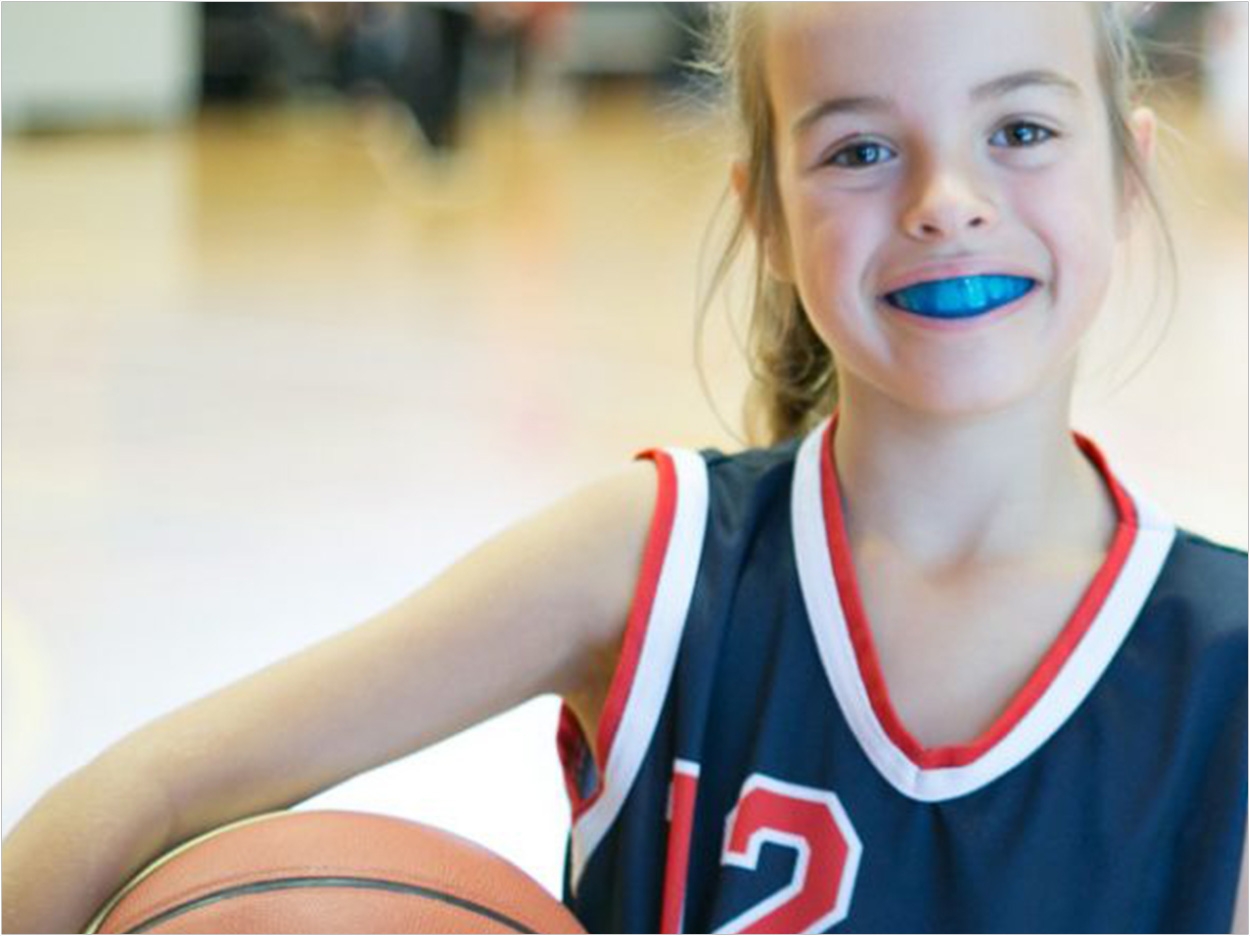
Some dental and facial injuries sustained in athletic activities are preventable. This April, five dental organizations have joined forces to educate the public to wear mouth guards, helmets, and other gear as part of National Facial Protection Month (NFPM).
For example, John D. went to baseball practice without a mouth guard, and a baseball hit him directly in the mouth. The force pushed his two front teeth backward, broke the bone in his palate, and led to an emergency room visit.
“But had he been wearing a mouth guard, he would likely have had less trauma and probably would not have broken his palate,” said John’s orthodontist, Jacqueline Miller, DDS, MS, who repositioned his palate and teeth.
Miller also is a member of the American Association of Orthodontists (AAO), which joins the Academy for Sports Dentistry, the American Academy of Pediatric Dentistry, the American Association of Oral and Maxillofacial Surgeons, and the ADA in sponsoring NFPM each year.
A mouth guard is one of the most inexpensive pieces of protective gear available to young athletes, especially compared to the high cost of restoring a knocked out or broken tooth, the groups report.
According to a 2017 AAO study, among 1,000 parents whose children play in organized sports, parents estimated it would cost $1,142 to replace a damaged permanent tooth. But costs to treat a knocked-out tooth over a lifetime can range from $5,000 to $20,000, Sports Health reports, as restorations may have to be repeated periodically, amplifying costs.
Many parents agree that mouth guards should be required to play, and 99% of those who took part in the AAO study concurred. Yet 37% of these parents admitted their child never wears a mouth guard while playing sports, including games, practices, and recreational play.
John wears a mouth guard now, Miller said.
“In fact, pretty much everyone I have treated for trauma to their mouth wears mouth guards—after the fact. I have put teeth back in from accidents in soccer, baseball, softball, basketball, cheerleading, track, trampoline, bike riding, and gymnastics,” Miller said.
“From my perspective, mouth guards should be required for any sport where there is the potential for contact with the mouth. It’s worth noting that I have never had to treat a dental injury from organized football. That’s because mouth guards are mandated,” she said.
Dentists and dental specialists can provide customized mouth guards that protect the teeth but also allow for normal speech and breathing. While a dentist-made mouth guard will have a more tailored fit and provide the best protection, the groups say, there also are commercially available mouth guards that are less expensive and available from local or online merchants.
According to the groups, mouth protection should be fitted, light, strong, easy to clean, and the correct size so it covers the gums and teeth. Athletes in orthodontic treatment should consult their orthodontist about the type of mouth guard to use.
Related Articles
Study Reports Inconsistent Mouth Guard Use Among Youth Athletes
Educate Parents About the Importance of Dental Protection
Smart Mouth Guard Detects Bruxism, Concussions, and More












